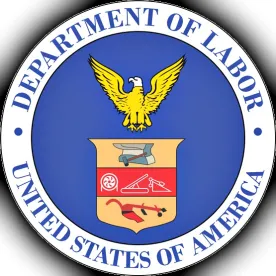A little-known but crucial position at the U.S. Department of Labor (DOL)—the director of the Office of Labor-Management Standards (OLMS)—was finally filled on July 9, 2018, by Arthur F. Rosenfeld, an experienced former member of the administration of President George W. Bush. The intention to appoint Rosenfeld was first announced over nine months ago.
Rosenfeld served in various capacities during the Bush administration prior to his recent appointment by U.S. Secretary of Labor R. Alexander Acosta to head OLMS—a position which does not require a White House nomination or Senate confirmation, but is appointed at the discretion of the secretary of labor. He was general counsel of the National Labor Relations Board (NLRB) from 2001 to 2006, overlapping with the term of Acosta, who served as a member of the NLRB. Rosenfeld was also director of the Federal Mediation and Conciliation Service from 2006 to 2009. Prior to that, he filled various posts at the DOL from 1986 to 1997, and from 1997 to 2001 was labor counsel on the Republican staff of the U.S. Senate Committee on Health, Education, Labor, and Pensions. Rosenfeld came to Washington, D.C., directly from the Villanova University School of Law and was hired by the U.S. Chamber of Commerce, which he served from 1979 to 1984. He received his undergraduate degree from Muhlenberg College and a master of business administration degree from Lehigh University. Most recently, prior to his appointment to head OLMS, Rosenfeld served as an advisor to the solicitor of labor.
Crucial Issues Await Rosenfeld at OLMS
In his new role at OLMS, Rosenfeld will be responsible for enforcing the Labor-Management Reporting and Disclosure Act of 1959 (LMRDA), which governs the conduct and auditing of unions and union officials, and enforcing reporting requirements for businesses and management consultants under the LMRDA’s so-called “persuader activity” regulation and its accompanying exceptions. In the last year of the Obama administration, the DOL promulgated a burdensome and highly controversial revision to the “persuader activity” advice exceptions, which for the first time in the LMRDA’s more than 50-year history would have required businesses and outside consultants to publicly disclose and report private financial details for a broad swath of services previously classified as exempt during union organizing campaigns. That regulation was permanently enjoined on a nationwide basis by the U.S. District Court for the Northern Division of Texas in a decision which called the regulation “defective to its core.” The lawsuit was brought by Ogletree Deakins on behalf of the National Federation of Independent Business, the National Association of Home Builders, the Texas Association of Business, the Texas Association of Builders, the Lubbock Chamber of Commerce, and several Texas law firms.
Since then, an appeal before the Fifth Circuit filed by the DOL and U.S. Department of Justice has been held in abeyance while OLMS works on a final rule rescinding the prior regulation. Recently, it was disclosed that the rule rescinding the regulation had been approved by the White House Office of Information and Regulatory Affairs and had been sent back to DOL for filing in the Federal Register. Perhaps with the appointment of Rosenfeld at OLMS, the final rule rescinding the Obama persuader activity regulation will be released.
“Worker Center” Controversy Awaits Rosenfeld
Also awaiting Rosenfeld at OLMS is a determination about whether “worker centers” are labor organizations responsible for the reporting and public disclosure of information under the LMRDA. Worker centers are entities that focus on organizing workers for job actions demanding higher wage rates, such as the “Fight for $15” campaign to raise the minimum wage to $15 per hour. Worker centers have sprung up in the retail, hospitality, warehouse, and farming industries, among others.
Some business groups and members of Congress contend that certain worker centers operate as labor organizations without the legal restrictions placed on unions, such as the National Labor Relations Act’s (NLRA) prohibitions on secondary boycotts or the financial reporting requirements of the LMRDA.
Unions argue that worker centers are not labor organizations, but rather community-based mediating institutions that organize around low-wage workers and have no rights to collective bargaining with employers.
The status and conduct of worker centers is an important issue not only for financial auditing requirements under the LMRDA, but also for matters arising under the NLRA.
Central Function of OLMS
The main function of OLMS is to audit the conduct and financial transactions that unions owe to their members under the LMRDA, and the financial dealings between labor and management.
In pro-union political administrations, OLMS budgets typically are reduced and enforcement redirected to investigations against employers. The opposite is true in pro-employer administrations. The fiscal year 2019 OLMS budget represents a slight increase over the previous fiscal year and restores the International Compliance Audit Program, which had been abolished by the Obama administration, designed to safeguard union members from fraud and embezzlement. In response to a request from Congress, OLMS recently stated that it intended to enforce the law and already had several worker centers under investigation.




 />i
/>i

